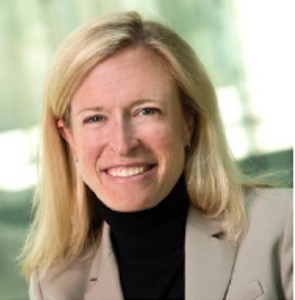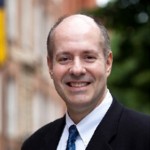Sections are central to the AALS mission of advancing excellence in legal education. AALS launched “Spotlight on Sections” in the previous issue of AALS News to highlight the various ways these groups help connect law school faculty and staff on topics of shared interest.
For this edition of “Spotlight on Sections,” AALS talked with the leaders of the Section on Federal Courts to discuss their activities and what they have planned for the AALS Annual Meeting.


Professor Tyler, what have you learned in your year serving as Chair?
Amanda Tyler: I’ve learned that the Section on Federal Courts is a vibrant section and there are a large number of stakeholders who care about keeping it that way, especially the members of the executive committee. I’ve been impressed by the response we’ve received when we have made calls for volunteers.
In terms of activities, we are continuing a junior federal courts paper competition, which launched under the leadership of Tara Grove, my predecessor. This was a great initiative. We awarded our first annual award to Seth Davis at UC Irvine for his paper. We did a Call for Papers again this year and we have a number of impressive papers in the mix. We will invite the winner to present their work with a senior scholar at the breakfast this year. We are trying to make better use of the breakfast meeting, to make that a scholarly exchange as well. It will also allow us to recognize the selected junior scholar in front of his or her peers in the section. The breakfast traditionally has been a social event, but I’d like to use that time to promote a junior scholar in the field. When you pair it with the paper competition, the breakfast should be a great event.
Last year’s Federal Courts program, “The Role of History in the Federal Courts Canon” was a popular one that featured a lively discussion on Founding and Reconstruction understandings of the role of federal courts. What can you tell me about that program?
AT: It was a topic of great interest to both me and Professor Clark and Professor Grove. The history and role of federal courts jurisprudence is an important topic. Originalism in its various forms has had enormous influence in the field of federal courts. I would say more influence there than in constitutional law generally. I thought it would be interesting to have a conversation about whether that influence was warranted because of something unique about our field. It was exciting to invite a number of prominent voices in the field to participate.
Bradford Clark: Professor Tyler is modest, but she put on a fantastic program. We even had Supreme Court Justice Antonin Scalia attend.
AT: We were pretty sure he was going to come, but didn’t want to advertise his attendance and then have it fall through. It was kind of exciting to sneak him in. I was thrilled to have him participate and also the rest of our talented panelists including Professor Richard Fallon from Harvard Law who had already written an important paper on this topic, which I had in mind when planning the panel. I invited our outgoing Chair Tara Grove [William & Mary Law School] who has written about jurisdiction allocation in the federal courts field, and Professor Clark and Professor Anthony J. Bellia, Jr. [Notre Dame Law School] who talked about their work.
BC: One thing about that panel that I liked was that it nicely bridged the academic community with the judicial and practice community. It is a subject of interest to academics in various contexts and ways, but by bringing in Justice Scalia, the program also highlighted the importance of the topic for people who might be litigating the issues before the U. S. Supreme Court. The Court has indicated in several areas the importance of history, particularly if there is not a lot of case law or if it is a question of relative first impression. Although it’s not necessarily bound by history in every case, the Supreme Court almost always consults history in those cases. I thought it would be a nice program for people who either practice on the side or follow practice closely, in addition to the purely academic side of it. It was a good way to bring those elements together.
The work of the late Professor Daniel J. Meltzer—a renowned legal scholar and federal courts and criminal procedure expert—will be honored at the upcoming AALS Annual Meeting. What do you hope attendees learn from this program?
BC: Professor Dan Meltzer was a professor for approximately 30 years at Harvard Law School and taught federal courts to generations of students, including Amanda. I knew about him because he was on the federal courts casebook that I used and I met him over the years. He had been away from Harvard working in the White House Counsel’s Office in the Obama Administration and had recently come back to teach but passed away earlier this year. He knew we were planning this program and gave me his blessing to do it before he passed. Through his writing and teaching, he had an impact on the field that few people ever have.
We have pulled together leading scholars, including some of his colleagues at Harvard, for the program: Professor Richard Fallon [Harvard Law School], Professor John Manning [Harvard Law School], Professor Vicki Jackson [Harvard Law School], Professor Judith Resnick [Yale Law School], and Professor Henry Monaghan [Columbia University School of Law]. They all are thrilled to participate. We are going to focus the discussion on different aspects of Professor Meltzer’s work and his impact on the field. We think it will be a wonderful, engaging discussion. There probably will be no one in the Federal Courts Section who has not been touched in some way by Dan’s work. It should be a fitting tribute and the papers will be published in the federal courts issue of the Notre Dame Law Review.
AT: It’s a star lineup of scholars and will be a wonderful tribute to the legacy of his scholarship. So many of us knew him, worked with him, learned under him, and debated him. His impact is far and wide in the field.
BC: He was a wonderful teacher and colleague. This will be a special opportunity to celebrate his contributions and learn from top scholars about their thoughts on his work and its impact.
Professor Clark, what topics do you hope to explore during your term as Chair next year?
BC: As Chair-Elect, I’m waiting to take over after the AALS Annual Meeting. I suspect I’ll hear ideas for innovations for the coming year during the meeting, perhaps from the section’s executive committee. Under the guidance of the last few chairs, we have had many interesting panels and innovations, including the new prize for the young scholars paper. My hope is to continue the level of interest and enthusiasm. Ten or 15 years ago, some people were saying that federal courts as a field had been “played out” and wondered if there was much more to do. Circumstances have instead suggested that it is a vibrant and important field.
For example, the War on Terror raised a lot of interesting federal courts questions about Guantanamo, habeas corpus, and statutes that Congress passed. Questions that had not come up since World War II were being re-litigated. I’ve been pleased with the level of vibrancy in the section, and I suspect that only to continue.
Outside of the AALS Annual Meeting, how do section participants connect?
AT: We have a listserv and a member of the executive committee who circulates a newsletter on a quarterly basis highlighting developments in the field, including case law and major decisions. The executive committee has its own listserv of sorts where we talk about planning for the panel each year and organizing volunteers for the committee to choose the scholarly papers prize. We float other proposals there as well.
The breakfast typically has been a successful social event. As we are adding a scholarship component this year, we might plan a third event to give section members a chance to meet each other and interact. Newer scholars also can connect at a conference for junior federal courts scholars and receive feedback from more senior faculty. Many scholars in this filed are willing to undertake a number of activities to promote our work and to help junior scholars seeking to break into the field.
How does membership in this section benefit scholars and teachers in this area?
AT: Increasingly, the section is focused on helping junior scholars, especially as we try to highlight their scholarship with this new award.
BC: The section program at the Annual Meeting is well-attended and I think if I were a junior scholar, I would want to attend not only to hear the presentations, but to meet influential scholars before and after the program. I know people came up last year and introduced themselves to senior faculty and were able to make a connection, to talk about their own work and scholarship. I’ve certainly met several people that way at conferences over the years. Most of the senior people in the field want to encourage younger people in their work.
AT: For more senior academics in this area, they not only can meet these junior scholars, they also have a chance to promote a dialogue across the field on timely issues of importance. There are also ways for them to highlight their own work.
BC: The topics at the panel change each year. I know for me, it’s an opportunity to be exposed to experts in a specific area of the field. We all teach the course, so we all know something about all the topics, but most of us do not write in every aspect of federal courts. It is too big of a field. Attending the section’s panel means hearing from talented people who have been doing research and thinking about a topic for a number of years. To hear Professor Tyler speak about the role of history in habeas corpus, for example, or Professor Fallon on his perspective on the role of history in various areas—it is invaluable.
Read this month’s other Spotlight on Sections interview with the leadership of the Section on Clinical Legal Education.